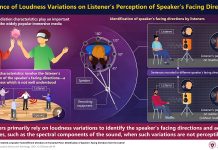
Have you ever wondered why we’re okay with using calculators, but get nervous when we talk about Artificial Intelligence (AI)?
Well, it’s mainly because we’re comfortable with calculators doing complex calculations swiftly, even though we might not know how they do it. But when it comes to AI, things feel a bit different and unsettling. A
I systems are designed to continuously learn and take on more tasks that we thought only humans could do.
This learning capability makes us uncomfortable because we fear being overtaken by a super-smart AI, or worse, losing our jobs to machines.
In reality, we interact with AI more than we think. AI algorithms (think of them like recipes that computers follow) are behind 50% of all internet traffic.
They are responsible for 40% of edits on Wikipedia and also create many social media accounts. And then there’s ChatGPT, an AI that can produce written texts based on conversations with users. It’s everywhere!
But here’s the thing: these algorithms don’t try to “understand” data like we do. Instead, they look for patterns and connections between data points to provide useful information. Renowned sociologist, Elena Esposito, suggests that we should think of this as “artificial communication” rather than “artificial intelligence”. She believes that doing so could make us less uncomfortable about AI.
However, with more AI in our lives, we face new challenges. One issue is how AI customizes information and services for us without us even asking for it.
This means that we’re each living in our own personalized bubble, making it hard to understand different perspectives or even know what others know. This might undermine the sense of community we share as a society.
Moreover, the increased use of AI changes how we remember things. In the past, forgetting happened naturally, but now with everything preserved online, we have to put in an effort to forget!
And the final paradox: to forget something, we might need to add more information so that what we want to forget is buried deep in the search engine results.
As for whether AI can predict the future, that remains to be seen. The future will always depend on human behavior, which is constantly changing.
AI can use big data to find patterns and correlations, but these often result in predictions that are difficult for humans to understand, much like the cryptic predictions of ancient fortune tellers.
So, as we dive deeper into this high-tech world filled with AI, big data, and bots, we need to ask ourselves some critical questions.
Can we control something that we don’t fully understand? Are the machines really getting too smart, or are we just not ready to understand them fully yet? As we grapple with these questions, remember that AI is a tool, and like any tool, it’s up to us how we use it.



